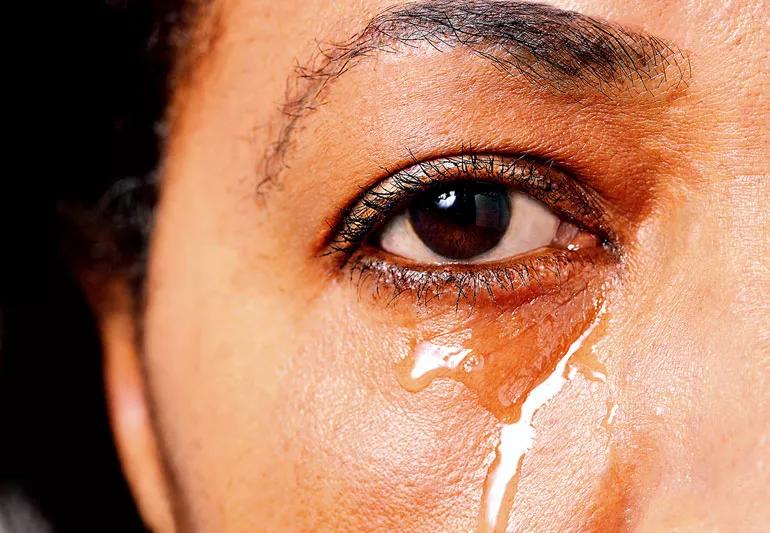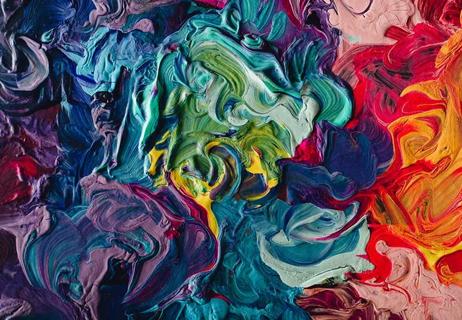Fascinating facts about what tears do for your eyes and more

Why do we cry even when we’re not sad? What are tears good for anyway? According to wellness expert Michael Roizen, MD, tears are extremely useful. They help you see clearly. They wash debris from your eyes. And they communicate all kinds of feelings.
Advertisement
Cleveland Clinic is a non-profit academic medical center. Advertising on our site helps support our mission. We do not endorse non-Cleveland Clinic products or services. Policy
But did you know that not every tear is made up of the same material? And while some people cry more than others, it’s OK: You can cry if you want to. Dr. Roizen walks us through all of the amazing facts about the fluid that fills your eyes each and every day.
We cry for a variety of reasons. Your emotions can cause you to cry when you’re sad, angry or happy.
“Crying for emotional reasons can make you feel better, releases tension and gives you a psychic reboot,” Dr. Roizen says.
But there are physical reasons, too, like if you’ve got dirt in your eye or you experience some physical pain.
“Crying also happens for physical reasons to deliver nutrients and wash out stress-related toxins,” says Dr. Roizen. “And we cry for social reasons to communicate distress, sincerity, attraction, aversion — depending on the context.”
The fluid that makes up your tears contains water for moisture and oils for lubrication and to prevent your tear liquid from evaporating. Your tears also contain mucus so they can spread evenly across the surface of your eyes. Plus, that mucus contains antibodies and special proteins for resistance to infection. Oxygen and nutrients are also transported to the surface cells of your eyes by tears since there aren’t blood vessels on your eyes.
Advertisement
There are three kinds of tears, and each kind has a very different job. Some tears keep your eyes moist, while others wash away debris and protect your eyes from infection. Then, there are the emotional tears.
Here’s why life would look much blurrier without all three kinds.
These are your basic tears. Your eyes roll around in them all day. They contain oil, mucus, water and salt, and help fight infection. The oil keeps your tears in place and prevents them from evaporating into the atmosphere. Blinking spreads them evenly over the surface of your eye. These tears can improve your vision and sharpen your focus.
These are your eyewash tears. The glands under your eyebrows push them out when you peel an onion, vomit or get dust in your eye. They flush out the material that’s irritating your eyes. These are the kind of tears that stream down your face when your allergies are kicking into high gear.
These tears gush in response to strong emotions like sadness, grief, joy or rage. They have the same chemical makeup as basal tears, but contain more stress hormones and natural painkillers. Humans and animals have compounds in our body fluids that give off subtle messages to other members of the species. That’s why sometimes our tears can relay chemical messages (either intended or unintended) to someone close by. This can bring about empathy or compassion in other people, or signal them to stay away, for example.
According to the American Academy of Ophthalmology emotional tears are triggered by empathy, compassionate and societal pain, physical pain, attachment-related pain, and sentimental or moral feelings. Some studies also suggest people are more likely to feel better after crying if they received social support while doing it.
Crying is a normal behavior caused by a variety of reasons that include emotional, physical and chemical responses from your body. But it’s possible you can cry too much or not cry enough. Either can cause damage to your eyes if left untreated. Some conditions that aren’t considered normal may include the following.
The tiny openings in the inner corner of your eyelids are drains. When you get a cold, these drains can swell and become blocked. This causes your tears to overflow onto your face. Sometimes, your tear glands produce too little oil for the basal tear mix. This can also cause an ongoing tear spill.
Your eyes can temporarily dry out because of atmospheric conditions. But they can also dry out from disease. Some medications and cancer treatments can cause dry eyes as well. In these situations, your eyes may not produce any tears, causing irritation. Or your eyes could produce emergency tears too quickly to overcompensate for the lack of lubrication needed to keep your eyes clean and fresh. These emergency tears can contain excess mucus that you might feel like wiping away when it becomes too much, but that could lead to mucus fishing syndrome.
Advertisement
“Drug stores carry different types of artificial tears to treat dry eyes,” Dr. Roizen recommends. “But if this sort of thing goes on, see your doctor to obtain treatments that can help with any eye conditions you may have and treat the underlying causes.”
This neurological condition, which brings uncontrollable tears to the surface of your eyes, is caused by Alzheimer’s disease, stroke and other brain diseases. If this happens, be sure to consult your doctor and detail your symptoms so you can receive the proper treatment, Dr. Roizen advises.
“Remember, all tears are there for the greater good,” Dr. Roizen explains, “so there’s absolutely no need for you to ever hold them back.”
But if your eyes are irritated, itchy, red or swollen, or if you’re constantly crying without any noticeable reason, you should seek out your healthcare provider to determine the underlying cause in case you have an eye infection or other untreated condition.
Advertisement
Learn more about our editorial process.
Advertisement

Your eyes could be burning because of allergies, elevated salt levels, dry eyes and more

Be patient and try at-home remedies like applying a cold compress and elevating your head while sleeping

They could be hungry, gassy, colicky or sleepy, or even too hot or too cold

Not all rainbows have gold at the end — the ones our bodies produce offer insight into our health

Here's when to worry about your nasal mucus changing hues

You may notice a decrease in your LDL ‘bad’ cholesterol in about four weeks

Options for your changing mobility range from small swaps to major renovations

Chilblain-like skin lesions and rashes are mild (and rare) complications of many viral infections, not just COVID-19

Wearing a scarf, adjusting your outdoor activities and following your asthma treatment plan can help limit breathing problems

Your diet in the weeks, days and hours ahead of your race can power you to the finish line

When someone guilt trips you, they’re using emotionally manipulative behavior to try to get you to act a certain way